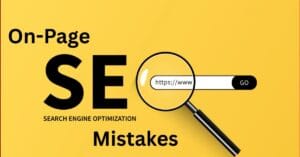Title tags are one of the most important on-page SEO elements. They directly influence how your page appears in Google search results and whether users click on it.
In this guide, you’ll learn:
- What a title tag is
- Why it matters for SEO and CTR
- Best practices to write high-performing titles
- Common mistakes to avoid
- Optimization tools and tips
✅ What is a Title Tag?
A title tag is an HTML element that specifies the title of a web page. It appears:
- In browser tabs
- As the clickable headline in Google search results
- When someone shares your link on social media
📌 Example:
htmlCopyEdit<title>Title Tag Optimization Guide for SEO | VijayReddy.in</title>
📈 Why Title Tag Optimization Matters
| Benefit | Explanation |
|---|---|
| 🔍 Helps Search Engines | Google uses it to understand your page topic |
| 👀 Influences Clicks | Users decide to click based on your title |
| 🎯 Improves Rankings | Title tags with relevant keywords rank better |
| 📱 Affects Social Sharing | Appears as the title when links are shared on social platforms |
✍️ Best Practices for Title Tag Optimization
1. Use Primary Keyword Near the Beginning
Example:
Bad: “10 Strategies to Boost Traffic Using SEO”
Good: “SEO Strategies: 10 Ways to Boost Website Traffic”
Google gives more weight to the beginning of the title.
2. Keep It Between 50–60 Characters
- Google usually displays up to 600 pixels or ~60 characters
- Longer titles may get cut off in search results
✅ Use:
https://serpsim.com to preview how your title looks
3. Make It Click-Worthy (Increase CTR)
- Add numbers: “10 Tips”, “5 Best Tools”
- Use power words: Best, Proven, Ultimate, Easy, Complete
- Include benefits: “…to Rank Faster”, “…to Get More Traffic”
- Add year: Keeps your content fresh (“…in 2025”)
✅ Example:
Before: “Content Marketing Tips”
After: “10 Proven Content Marketing Tips to Boost Traffic (2025)”
4. Make Each Title Unique
Avoid duplicate titles across your site. Each page should have a title that reflects its specific content.
✅ Tools:
- Screaming Frog
- Ahrefs Site Audit
- Google Search Console → HTML Improvements
5. Include Your Brand (If Space Allows)
Including your brand name can:
- Build trust
- Increase brand recall
- Help with branded searches
✅ Format:
Primary Keyword – Secondary Keyword | Brand Name
Example: Digital Marketing Strategy Guide | VijayReddy.in
6. Match Search Intent
Understand what users are really searching for and create titles that answer that intent.
Examples:
- Informational: “What is Google Ads & How It Works”
- Transactional: “Buy Running Shoes Online – Free Shipping”
- Navigational: “Vijay Reddy Blog – SEO & Digital Marketing Tips”
7. Avoid Keyword Stuffing
Don’t write titles like:
“SEO, SEO Tools, SEO Strategy, SEO Ranking Guide”
✅ Instead:
“SEO Strategy Guide: Tools & Tips to Improve Google Rankings”
8. Add Modifiers for Long-Tail Keywords
Modifiers help capture long-tail searches. Use words like:
- Best
- Free
- Online
- Easy
- Step-by-step
- For Beginners
- 2025
✅ Example:
“Best SEO Tools for Small Businesses in 2025”
9. Test & Monitor Performance
Check performance in Google Search Console:
- Go to Performance → Pages or Queries
- Look for low CTR pages with high impressions
- Update those titles with better CTAs or keywords
❌ Common Mistakes to Avoid
| Mistake | Why It Hurts |
|---|---|
| ✖️ Too Long | Gets truncated in search results |
| ✖️ No Keyword | Less relevant for search queries |
| ✖️ Clickbait | Misleads users → increases bounce rate |
| ✖️ Duplicate Titles | Confuses search engines & users |
| ✖️ Missing Brand | Loses trust and recall opportunities |
🔧 Tools to Optimize Title Tags
| Tool | Use |
|---|---|
| Google Search Console | Analyze clicks & CTR |
| Yoast SEO / Rank Math | Preview & optimize titles in WordPress |
| Screaming Frog | Audit all site titles in bulk |
| SerpSim.com | See how your title looks in SERP |
| Ahrefs / SEMrush | Analyze top title tags in your niche |
🧠 Final Thoughts
Title tags are small but mighty. They directly affect how your pages rank and how users engage with your listings.
When optimized correctly, title tags can:
- Increase your organic click-through rate (CTR)
- Improve your search rankings
- Drive more qualified traffic to your site
🔁 Keep testing and updating your title tags as part of your ongoing SEO strategy.



Pingback: What is On-Page SEO? Best On-Page SEO Practices